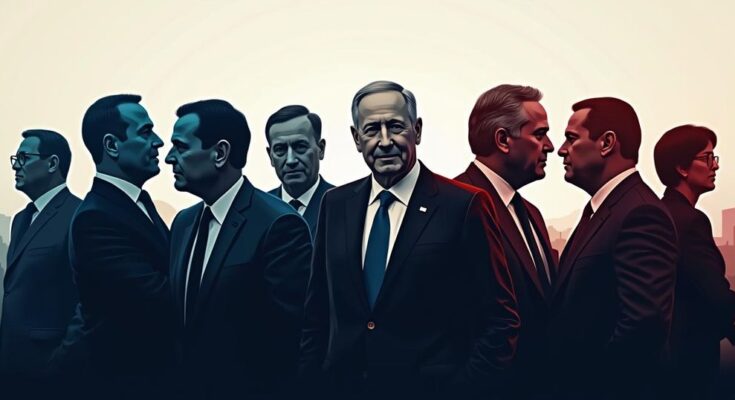US political leaders show strong support for Israel following the assassination of Hezbollah leader Hassan Nasrallah by Israeli air strikes. President Biden claims it represents justice for numerous victims, while the administration calls for de-escalation in the region. Significant casualties have already been reported due to ongoing air strikes in Lebanon, raising humanitarian concerns despite political backing for Israel’s actions.
Political leaders in the United States have expressed unwavering support for Israel following a series of extensive Israeli air strikes in Beirut, which resulted in the death of prominent Hezbollah leader Hassan Nasrallah. Among those voicing their support are President Joe Biden, Vice President Kamala Harris, and Republican House Speaker Mike Johnson, who collectively acknowledged the implications of Nasrallah’s death. President Biden articulated that Nasrallah and the group he led, Hezbollah, were responsible for numerous American casualties over the decades, framing his killing as a significant act of justice for victims, including Americans and innocent civilians in Israel and Lebanon. Despite this support, the Biden administration has called for a reduction in regional tensions while largely refraining from employing tools such as suspending arms sales to moderate Israeli actions during a time of escalated conflict in Lebanon. In a statement, Vice President Harris reiterated the administration’s desire to avoid escalation into a broader Middle Eastern conflict, emphasizing that diplomacy is vital for civilian protection and long-term regional stability. Israeli military actions in Lebanon have claimed over 1,030 lives since mid-September, with the count of deaths still uncertain following the recent attacks aimed at Nasrallah that also demolished civilian buildings. The assassination of Nasrallah, compounded by the prior targeting of other senior Hezbollah figures, poses a significant challenge to the Lebanese group and Iranian-aligned factions within the region. Observers remain uncertain about the potential ramifications and responses from Hezbollah and its allied groups, which include Iran-affiliated militias in Iraq and the Houthis in Yemen. US Defense Secretary Lloyd Austin communicated a commitment to Israel’s defense during a call with Israeli Defense Minister Yoav Gallant, reinforcing America’s readiness to protect its interests and forces in the region. The Biden administration’s unconditional support has garnered criticism from various activists and analysts who argue that such a stance contributes to ongoing Israeli aggressions, often resulting in substantial civilian casualties and breaches of international law. While former President Donald Trump has yet to publicly address the situation following Nasrallah’s death, prominent conservative voices in Congress advocate for a strong commitment to supporting Israel’s military efforts in both Lebanon and Gaza. House Speaker Johnson’s statement reflected this sentiment, urging the current administration to redirect its focus away from calls for ceasefire and diplomatic pressures that are perceived as detrimental to Israel’s security interests.
The current situation stems from the long-standing volatility and complexity of Middle Eastern geopolitics, particularly involving Israel and Hezbollah, an Iran-backed militant group based in Lebanon. The recent assassination of Hezbollah leader Hassan Nasrallah by Israeli forces marks a significant escalation in the ongoing conflict between these entities, further complicating the already delicate balance in the region. The United States, traditionally a strong supporter of Israel, has faced pressure to address the humanitarian toll of military actions while maintaining a robust defense partnership with Israel. The implications of Nasrallah’s death may alter the power dynamics within Hezbollah and the nature of Iranian influence in the region.
In summary, the killing of Hassan Nasrallah has prompted a strong reaction from US political leadership, affirming support for Israel amidst fears of heightened regional conflict. While President Biden and Vice President Harris advocate for diplomacy, they simultaneously support military actions against perceived threats from Hezbollah. As the situation develops, the potential for retaliatory responses from Hezbollah and its allies remains a critical concern, underscoring the complexities tied to U.S. foreign policy in the Middle East.
Original Source: www.aljazeera.com




